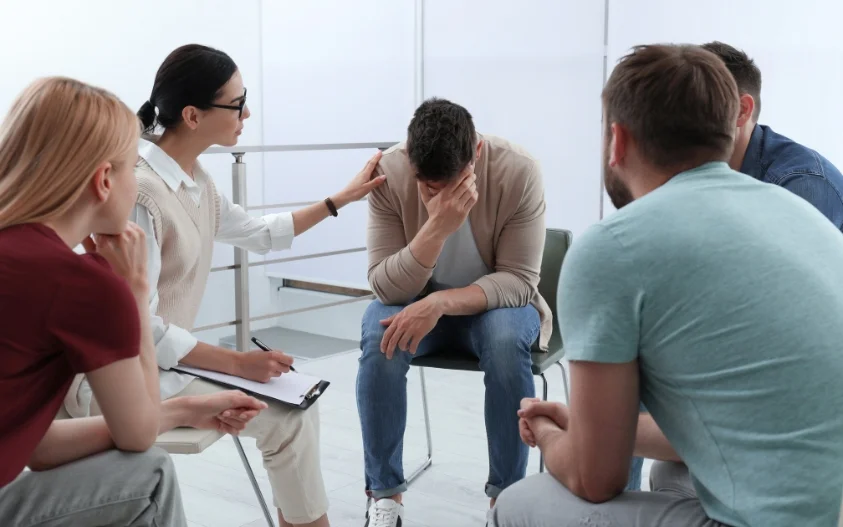24/7 Helpline:
(866) 899-221924/7 Helpline:
(866) 899-2219
Learn more about Prescription drug Rehab centers in Rogers County

Other Insurance Options

Carleon

WellCare Health Plans

Humana

Excellus

Sutter

Highmark

PHCS Network

Aetna

BlueShield

AllWell

CareSource

Health Net

Evernorth

Kaiser Permanente

Medical Mutual of Ohio

American Behavioral

UMR

Access to Recovery (ATR) Voucher

Covered California

Ceridian

Rogers County Drug Abuse Program
Rogers County Drug Abuse Program is a private rehab located in Claremore, Oklahoma. Rogers County Dr...

Hope Center Ministries – Claremore Women’s Center
Hope Center Ministries - Women's Center is a rehab facility, specializes in the treatment of alcohol...



















































Human Skills and Resources
Human Skills and Resources is a private rehab located in Claremore, Oklahoma. Human Skills and Resou...

Grand Lake Mental Health Center
Grand Lake Mental Health Center is a private rehab located in Claremore, Oklahoma. Grand Lake Mental...

Grand Lake Mental Health Center – South Highway 88
Grand Lake Mental Health Center – South Highway 88 is a private rehab located in Claremore, Oklahoma...

YouthCare of Oklahoma
YouthCare of Oklahoma is an outpatient clinic that provides mental health and substance use treatmen...

AA – Alcoholics Anonymous
AA – Alcoholics Anonymous is a private rehab located in Claremore, Oklahoma. AA – Alcoholics Anonymo...
























